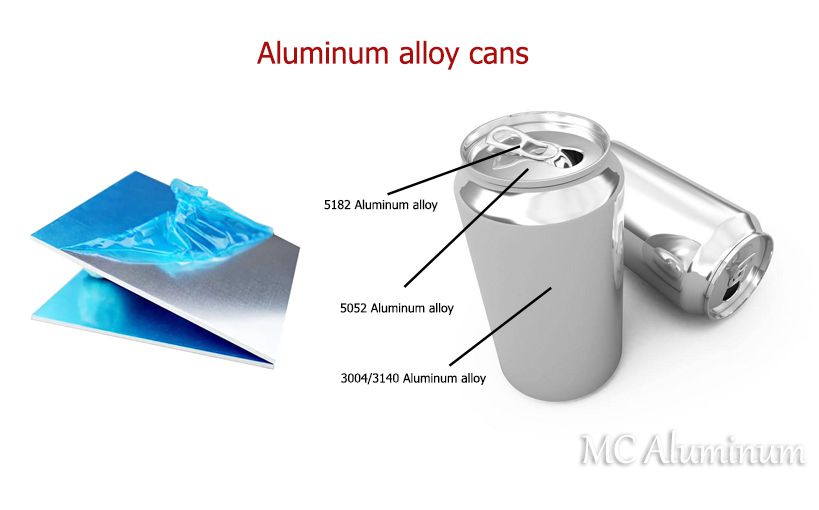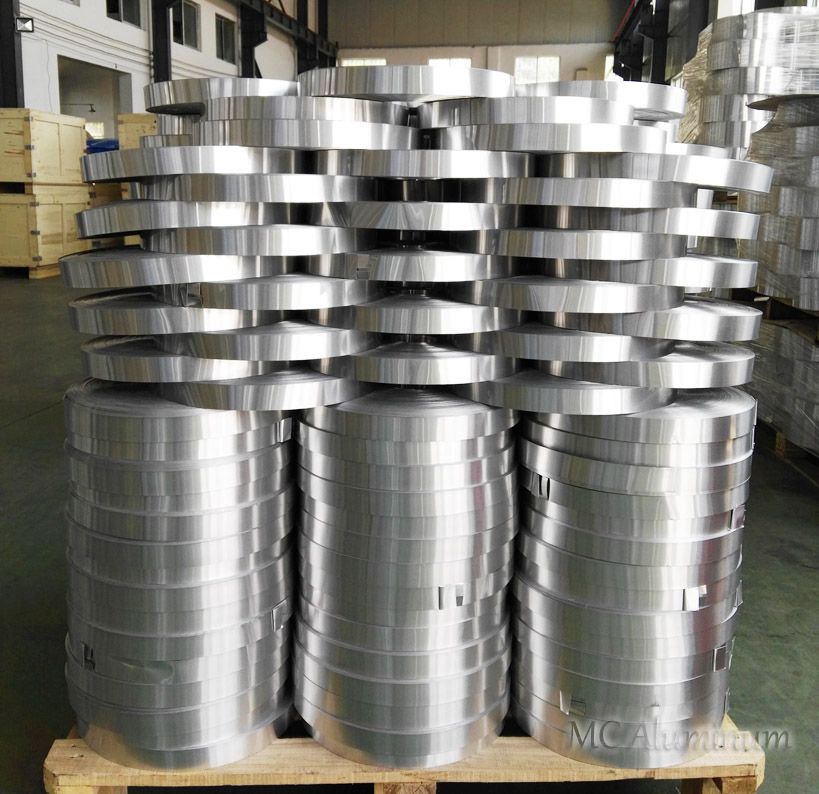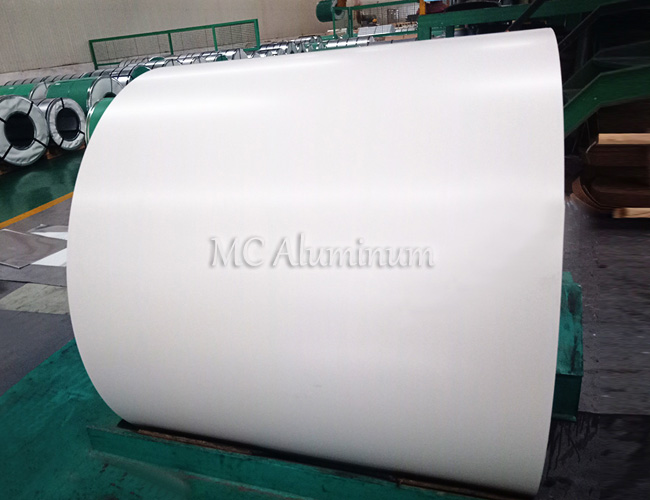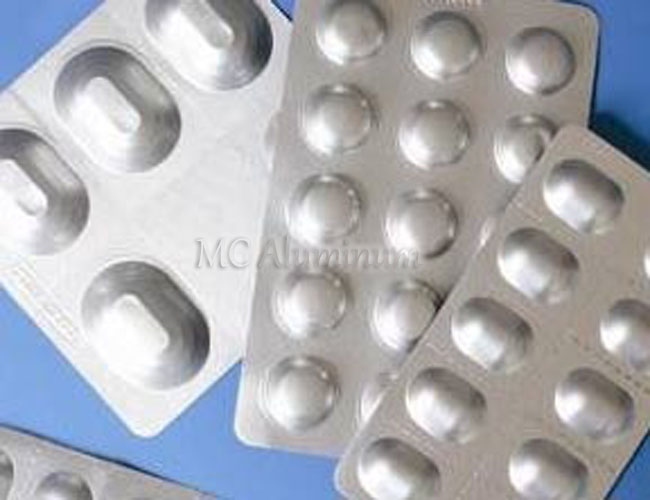What alloys are there for aluminum strips used in cans?
Since its introduction in the United States in the early 1960s, all-aluminum cans have been recognized as ideal packaging containers for beer and carbonated beverages for their light weight, corrosion resistance, good thermal conductivity, good processing formability, easy recycling, and beautiful appearance.
Aluminum strips used in cans are mainly composed of three different types of aluminum alloys: 3004/3104 aluminum alloy can body, 5052 aluminum alloy can lid, and 5182 aluminum alloy pull ring. Aluminum alloy is the key to can making. The shapelessness of the can body and the inability to open the pull ring on the can lid are all aluminum problems.

Introduction to aluminum alloy can materials:
(1) Aluminum alloy for can body
3004, 3104 alloys: belong to aluminum-manganese alloys (3 series alloys).
Features: moderate strength, good ductility, strong corrosion resistance, and easy deep drawing.
Uses: Mainly used for the body of cans, because the body requires a certain strength and good ductility.
(2) Aluminum alloy for can lids
5182 alloy: Belongs to aluminum-magnesium alloys (5 series alloys).
Features: Has high strength and good corrosion resistance, and good welding performance.
Uses: The can lid requires high strength to withstand internal pressure, so 5182 alloy is often used.
(3) Aluminum alloy for pull rings
5052, 5182 alloys: Also belong to aluminum-magnesium alloys (5 series alloys).
Features: High strength, good corrosion resistance, and good toughness.
Uses: The pull ring needs to maintain strength when subjected to external forces and cannot break easily, so these high-strength alloys are selected.
Mechanical properties of aluminum strips used in cans:
5052H19 Tensile strength/Mpa: 270-330 Elongation/%≥5 Yield strength/Mpa: 240-300 Thickness: 0.2-0.36mm
3104H19 Tensile strength/Mpa: 270-320 Elongation/%≥5 Yield strength/Mpa: 240-280 Thickness: 0.2-0.36mm
5182H19 Tensile strength/Mpa: 360-410 Elongation/%≥6 Yield strength/Mpa: 310-360 Thickness: 0.25-0.5mm\

Reasons for using aluminum alloy in cans?
1. Light weight: Aluminum has a low density, which makes the overall weight of the can lighter and easier to carry and transport.
2. Good formability: Aluminum strips are easy to process and form, which can meet the needs of complex shapes of cans and are not easy to break.
3. Excellent corrosion resistance: A dense oxide film is easily formed on the surface of aluminum to protect the internal metal from corrosion and extend the service life of cans.
4. Good recyclability: Aluminum is a recyclable metal. Aluminum strips for cans can be recycled and reused after use, which meets environmental protection requirements.
5. Beautiful appearance: Aluminum strips can be subjected to various surface treatments, such as spraying, printing, etc., to give cans a more beautiful appearance.
6. Excellent barrier properties: Aluminum strips have good barrier properties, which can effectively prevent the ingredients in food or beverages from reacting with the external environment and maintain the freshness and taste of food or beverages.
7. Higher strength: Although aluminum has a low density, its strength is high, which can meet the pressure-bearing capacity requirements of cans.
Aluminum can sheet quality requirements:
1. Material thickness must be uniform and consistent, with a tolerance within 0.005mm;
2. The sheet surface has no obvious ripples, and the smoothness of the inner and outer surfaces should be uniform and consistent, without oxidation, and without visible defects such as inclusions, crushing, and scars;
3. The metal tensile strength and yield strength are uniform and consistent.
As a professional aluminum sheet manufacturer, MC Aluminum produces aluminum coils/aluminum sheets for cans with huge production capacity, fast delivery, and short delivery time. The company can produce 1-8 series aluminum sheet foil products with complete specifications to meet your diverse processing needs.







Contact Us